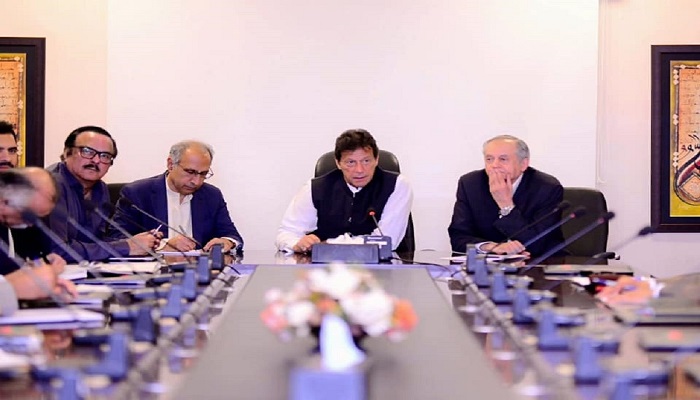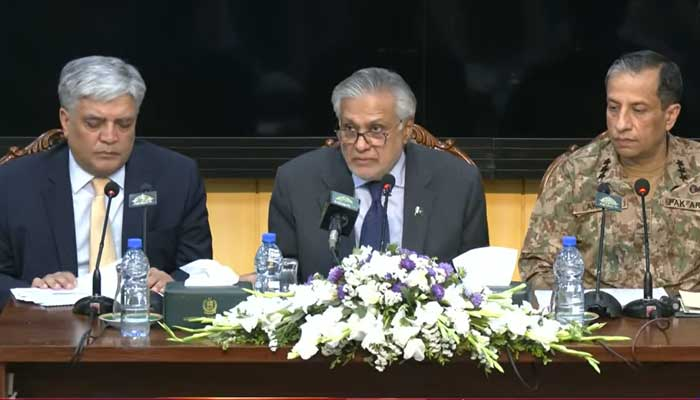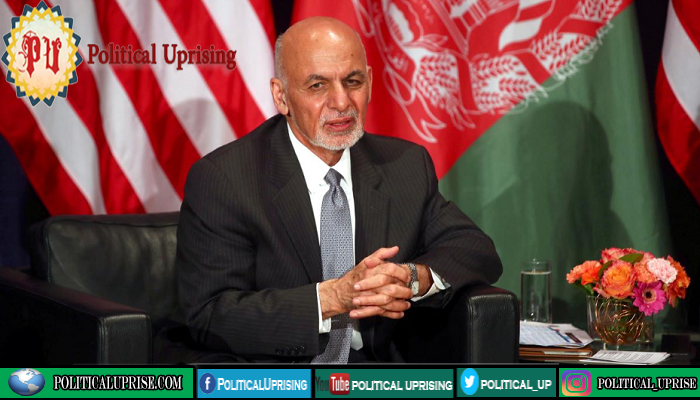The International Monetary Fund (IMF) has sent a second mission to Pakistan in just two months to assess progress on governance reforms and institutional transparency.
This mission, which began preliminary meetings this week, will continue with regular talks starting Monday. Its primary focus is to evaluate steps taken by Pakistan to enhance governance, transparency, and institutional performance in key government departments.
Sources within Pakistan’s Ministry of Finance revealed that the IMF delegation will engage with over thirty government institutions, including the Ministry of Finance, the State Bank of Pakistan, the Federal Board of Revenue (FBR), and the Planning and Privatization Commissions.
The delegation will also meet officials from the Auditor General’s office, the National Accountability Bureau (NAB), the Federal Investigation Agency (FIA), and regulatory bodies such as the Oil and Gas Regulatory Authority (OGRA), National Electric Power Regulatory Authority (NEPRA), and Pakistan Telecommunication Authority (PTA), among others.
China Reaffirms Support for Pakistan’s Counterterrorism Efforts
In addition to governance reforms, the IMF mission will closely examine Pakistan’s competitive landscape in key sectors like banking, construction, and sugar. Discussions will also include registrars from the Supreme Court and accountability courts as part of a broader focus on legal and judicial reforms.
The IMF’s engagement follows a recent staff-level agreement between Pakistan and the Fund, which secured a $1 billion tranche of financing under the Extended Fund Facility (EFF), subject to approval by the IMF Board. Additionally, a new $1.3 billion arrangement under the Resilience and Sustainability Facility (RSF) brings the total financing package to $2.3 billion.

The IMF has praised Pakistan’s efforts to stabilize its economy, noting improvements in fiscal discipline, a reduction in inflation, and the stabilization of external balances despite global economic challenges.
However, the IMF also highlighted ongoing risks, including geopolitical tensions, fluctuating commodity prices, and climate-related challenges, which could hinder Pakistan’s economic recovery.
The Fund stressed the importance of continued structural reforms, particularly in taxation, energy, and governance. The IMF has urged Pakistan to expand its tax base, particularly through the implementation of agricultural income taxes, and to phase out energy sector subsidies gradually. Moreover, the IMF has called for a tighter monetary policy to keep inflation within the 5-7% range in the medium term.
Pakistan and EU to Host First-Ever Joint Business Forum in May
While the IMF has urged tough decisions regarding fiscal and energy reforms, it also recognized Pakistan’s commitment to protecting social welfare programs, including the Benazir Income Support Programme (BISP).
The government has committed to prioritizing spending on health, education, and climate resilience projects as essential components for ensuring long-term social and economic stability.
Amid these ongoing discussions, Pakistan is also facing a new challenge from the United States.
Washington recently imposed a 29% tariff hike on Pakistani exports, particularly impacting the textile sector, which is a major contributor to the country’s export revenue. In response, Pakistan’s Finance Minister, Muhammad Aurangzeb, announced the formation of a high-level delegation tasked with engaging in critical talks with U.S. officials.
Pakistan Lacks Information on Citizens Traveling to Israel: Foreign Office
Speaking at a press conference, Aurangzeb confirmed the establishment of a steering committee and a specialized working group to craft a strategic response to the tariff increase. The delegation will present its recommendations to Prime Minister Shehbaz Sharif in the coming days, with both short- and long-term solutions aimed at mitigating the adverse effects of the new trade barriers.

The upcoming talks with U.S. officials are expected to focus on tariff reduction, boosting export competitiveness, and exploring new avenues for economic collaboration between the two countries.
Despite the challenges, Aurangzeb emphasized that the situation presents an opportunity for Pakistan to revisit and strengthen its bilateral trade relations with the United States.
However, the Finance Minister clarified that no immediate special financial package for local industries is under consideration. Instead, the government is focusing on policy-based responses and diplomatic engagement to protect and enhance Pakistan’s trade interests.
Pakistani and Afghan Forces Clash at Torkham Border Crossing
Prime Minister Shehbaz Sharif has already formed a 12-member steering committee, which includes key figures such as the Finance Minister, Commerce Minister, Petroleum Minister, FBR Chairman, Foreign Secretary, Pakistan’s Ambassador to the U.S., and the former ambassador to the World Trade Organization.
The committee’s primary goal is to assess the impact of the tariffs, particularly on Pakistan’s textile industry, and devise effective policy measures. The tariff issue has also drawn international attention, with IMF Managing Director Kristalina Georgieva warning against protectionist policies during times of global economic uncertainty.
As Pakistan grapples with both internal economic reforms and external trade challenges, the country is working to maintain momentum on its economic recovery, secure critical international financing, and navigate the complexities of global trade dynamics.



